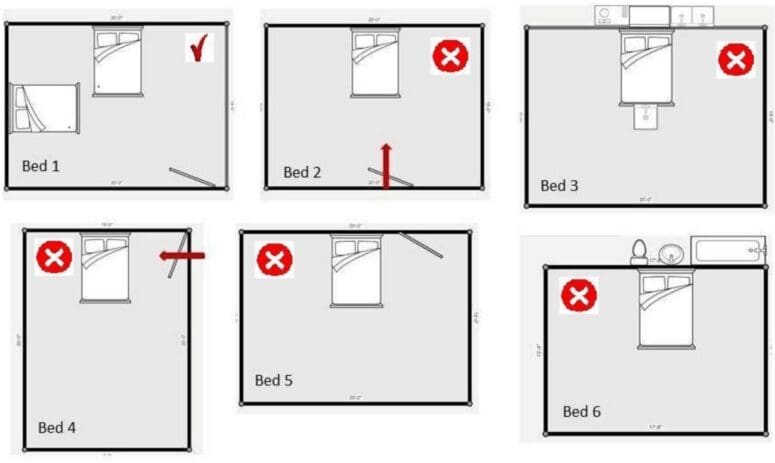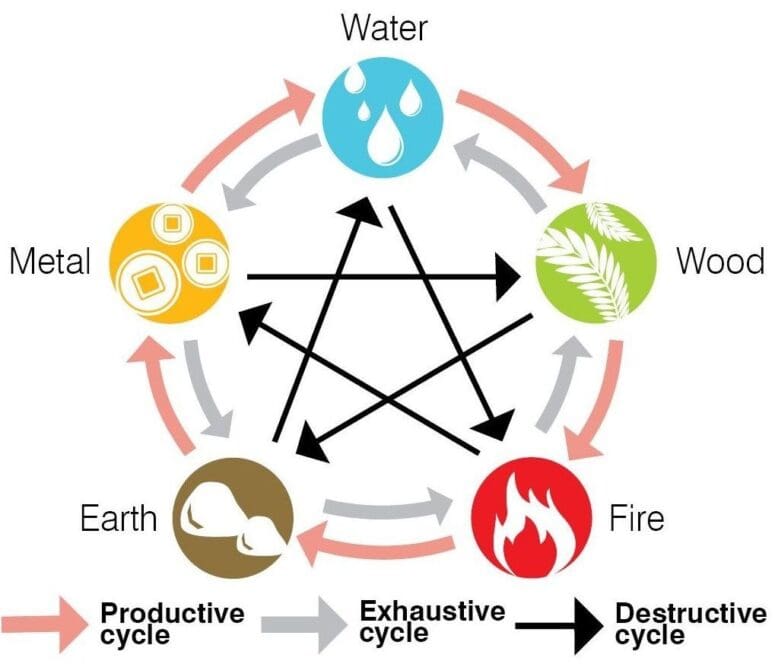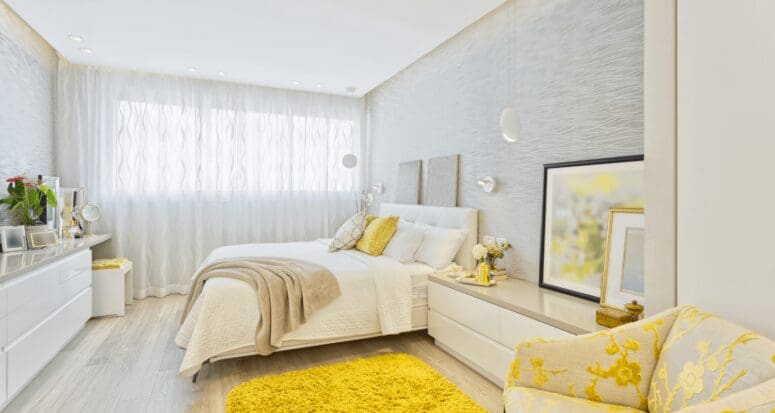Balance, Harmony, and Good Fortune: How to Feng Shui Your Way to a Fast Home Sale
- Published on
- 4-5 min read
-
 Christine Bartsch Contributing AuthorClose
Christine Bartsch Contributing AuthorClose Christine Bartsch Contributing Author
Christine Bartsch Contributing AuthorFormer art and design instructor Christine Bartsch holds an MFA in creative writing from Spalding University. Launching her writing career in 2007, Christine has crafted interior design content for companies including USA Today and Houzz.
Feng Shui is the ancient Chinese art or belief that you can organize the design and elements of your physical world to find harmony and balance with the spiritual world.
This belief system has been around for several thousand years, but the western world transformed the basics of Feng Shui into an interior design fad in the 1990s that remains popular among home buyers today. A recent survey of Chinese-American home buyers found that 86% report that they’ll factor in Feng Shui into their purchasing decisions.
“Adding aspects of Feng Shui makes a luxury home property more sellable, since wellness is an amenity high-end buyers are now coming to expect,” says wellness and Feng Shui expert Jaya Jaya Myra. “It’s such a key differentiator that even agents that don’t believe in it agree that having a home with good Feng Shui couldn’t hurt.”
If you are selling a high-end home, or you live in an area with a significant Asian population, incorporating Feng Shui into your home staging techniques could give your home an edge over the competition.

Here are three of the best Feng Shui-inspired tips to up your staging game and sell your home fast.
Feng shui principles applied: Flow, color, and the power of nature
While the full teachings of Feng Shui could fill several Tolkien-sized books, it’s easier to focus on a few of the key principles and how they translate to impactful interior design.
“I don’t always go into detail on how I’m using the principles of Feng Shui to make staging recommendations to my sellers,” says experienced Charlotte, North Carolina agent Nancy Braun.
“However, I do use Feng Shui principles to suggest functional changes, say to furniture layouts, or decluttering. I’ll also make Feng Shui color and texture recommendations.”
With that in mind, we’ll cover a few of the basics and how you, too, can use them in your own home staging efforts.
1. Follow the flow with your furniture arrangements
One of the basic tenets of Feng Shui is Qi or Chi, which is the force or flow of energy.
When a person has “good” Chi, they’re said to have a positive energy.
In real estate, Chi translates into spaces that have a good flow in regards to the furniture placement.
“It’s very challenging to ask someone to reposition furniture, especially if they’ve been living there for years or they love the way their home looks,” says Braun. “I advise my sellers to take pictures of items that I recommend moving so they don’t have to worry about remembering everything I’m asking them to do.”
Let’s take a look at some basic Feng Shui-inspired furniture placement guidelines:
- Don’t impede flow by overcrowding with too much furniture.
- Don’t block natural pathways into and through each room with furniture.
- Don’t position couches and chairs directly facing a doorway (unless you want to give off the energy that you often wait in the shadows to confront any who enter).
- Don’t place seating directly facing each other—either set at an angle or place a table between them to reduce the sense of a face-off confrontation.
- Never hang a mirror directly across from the front door, but do hang mirrors opposite windows with great views.
- Pay careful attention to your bed placement—it should be positioned opposite the door, but your feet should not directly point at the door.

The same flow principle goes for clutter, too, so take the minimalist, “less is more” approach when thinning out your belongings while staging.
“A cluttered space reflects a cluttered mind. People don’t want to buy a house when you walk in and immediately feel stressed out because the space, and energy is cluttered,” advises Myra.
“Anytime you declutter a space, it contributes to people feeling calmer and more relaxed.”
2. Consider the energy of your color choices
The energy exuded by colors impact a room’s Feng Shui in a big way.
However, when you’re staging a house to sell, you don’t want to paint your walls in bright, vibrant colors just to improve its Feng Shui. It’s best to stick with neutral wall colors according to buyer trends.
“The majority of buyers don’t have the vision to see how changing out furniture or a paint color can transform a house. Most prefer houses already staged with current interior design trends,” says Braun.
However, you can incorporate Feng Shui hues into every room by by introducing colorful accents, like throw pillows, vases, artwork, and other vibrant décor. The trick is picking the right Feng Shui-approved color for every room.
For sellers hoping to attract die-hard Feng Shui devotee home buyers, you’ll want to use a bagua map, or energy map, which encourages color (and element) placement based on the directional position of your home (north, south, east, west).

Feng Shui-ing your color is simpler for sellers who only want to focus on the energy each hue exudes.

“The difference between warm, energizing colors versus a cool, calming palette has an impact on how a property shows. Also think about how a room is used when choosing colors,” advises Myra.
“For example, bedrooms should be soothing and restful, whereas living rooms should invoke energy. In a room that gets little natural light, use warm colors that mimic the sun, like yellows and oranges.”
3. Incorporate the 5 elements
Feng Shui literally means “wind-water,” so it makes sense that the five basic elements—water, wood, fire, earth and metal—play a major part in its practice.
While you can go literal when introducing elements into your décor, you can also create the same balancing impact with items that represent the elements:
- Water – fountains; mirrors; seascapes; curved shapes; blue or black decor
- Wood – healthy plants; forest, tree, or leaf imagery; green or brown decor
- Fire – candles; electronics; lighting; triangular shapes; red or orange decor
- Earth – pottery (earthenware); landscape photos; beige or yellow decor
- Metal – Metallic finishes; circular shapes; rocks or stones; white or gray decor
Elements are so fundamental to Feng Shui, that some believe the right element in the right place can impact your life for the better.
However, when the goal is improving your Feng Shui to help your home sell, you’ll want to focus on how adding elements can create balance among the furniture, color, and décor already in your home.
In Feng Shui, the idea of balance is explored in the principle of yin-yang.
Yin-yang teaches that the cycle of elements can be used to create balance and harmony when paired together in the right way.

Feng Shui talks about this cycle in terms of productive, exhaustive, and destructive cycles. In interior design, productive essentially means “amps up,” exhaustive equals “downplays,” and destructive translates into “counteracts.”
- Water – amps up the impact of wood, downplays the impact of metal, balances out the impact of fire
- Wood – amps up the impact of fire, downplays the impact of water, balances out the impact of earth
- Fire – amps up the impact of earth, downplays the impact of wood, balances out the impact of metal
- Earth – amps up the impact of metal, downplays the impact of fire, balances out the impact of water
- Metal – amps up the impact of water, downplays the impact of earth, balances out the impact of wood
That may sound complex, but the application is actually pretty simple. If your room is heavy on or dominated by one element, you can downplay or counterbalance its impact by the introduction of another element.
For example, you don’t want to overload your living room with dark wood furniture when it has a fireplace as its centerpiece. It’ll look like the whole place is destined to go up in flames. You wouldn’t want to hang a television (fire element) over the fireplace for the same reason.
Instead, you’d want to counterbalance its impact by hanging a mirror (water element) over the mantelpiece.

It pays to Feng Shui your staging
Whether you believe completely in the spiritual aspects of Feng Shui or not, there’s no denying that its teachings contain sound interior design advice.
“Given that buyers will find multiple properties to fit their criteria, it’s how the home makes them feel that will be the main selling point, not its particular amenities,” says Myra.
“Bad interior design or a poor furniture layout is usually what leaves buyers feeling like something is off with a house. Using Feng Shui in staging can literally make the difference between whether your home sells quickly or not—and how comfortable and confident a buyer feels with their decision.”
If Feng Shui can make buyers feel that your house could become their future home, then it’s worth incorporating some of its principles into your staging.
Header Image Source: (Dmitry Pistrov/ Shutterstock)
